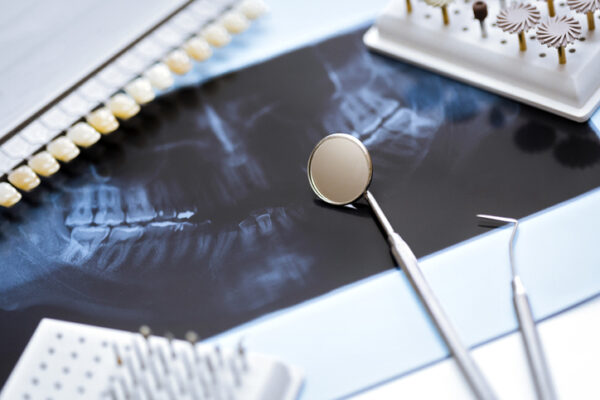
New York startup Quip – known for its line of consumer oral care products including toothpaste and electric toothbrushes – has launched a new pay-as-you-go alternative to dental insurance called Quipcare.
The service aims to be a more transparent system to purchase dental care that allows users to see pre-negotiated rates for procedures from dentists in the Quipcare network and book appointments through a mobile app.
Quipcare is free to join, but there is a upgraded option called Quipcare+, which offers additional preventive services like annual checkups and professional teeth cleaning for a $25 monthly fee.
Without Quipcare+ users are required to purchase these services a la carte for a flat booking fee. A comprehensive check-up, which includes a dental exam, teeth cleaning and x-rays costs $295 in the company’s launch market of New York City. A list of example prices for common procedures can be seen here.
“We want you to be able to browse providers, see what the transparent rates are and really book and pay through our platform,” said Jeffrey Rappaport, Quip’s director of care.
The company claims to be able to provide services at prices 30 to 40 percent less than average area rates.
Still, the monthly cost of Quipcare+ is comparable to existing dental insurance premiums. But the company pitches its product as a way to provide access to dental care to the more than 70 million people who currently don’t have dental insurance through a less confusing and tech-enabled system.
Another potential market are patients who have access to basic dental insurance, but have reached annual maximum rates or who are looking to pay for procedures that don’t fall under their covered benefits.
“Traditional dental insurance can be confusing with deductibles and co-payments and premiums that don’t tell the full story. Transparency isn’t exactly what you’re getting,” Rappaport said.
“We want to be able to give the members the confidence that we’re curating a network of best-in-class providers, not just someone who fills out an application.”
A nationwide rollout of the Quipcare will start in 2020 and the startup hopes to expand the types of services, plans and payment options available to meet the needs of both individuals and employers.
One opportunity could be in offering clear teeth aligners, helping Quip enter the lucrative market populated by upstart companies like SmileDirectClub, Candid Co. and SmileLove. Rappaport said the company also plans to eventually provide dental care offerings to small and medium-sized companies.
Quip was started in 2014 with its main business focused on monthly subscription sales of vibrating electric toothbrushes and associated oral health products. Founded by product designers Simon Enever and Bill May, the company has raised more than $60 million in venture and debt financing, including a a $40 million VC round last year led by Sherpa Capital to help build out Quipcare.
The company works with dentists as a distribution channel for its products through its “Dental Connect,” which helps work as a marketing strategy for providers while reminding Quip customers to visit the dentist at regular intervals.
Quip entered the dental services business through its 2018 acquisition of Afora, a New York-based dental care membership plan co-founded by Rappaport that was the precursor to Quipcare. Afora was the first company to join Quip Labs, the startup’s internal incubator for innovative oral health products and services.
The company isn’t alone at looking to modernize the staid dental benefits system. New York startup Level launched earlier this year aiming to help small and medium sized businesses transition to a self-funded dental benefits model supported by a more consumer-friendly technology platform.
Picture: Nastasic, Getty Images










